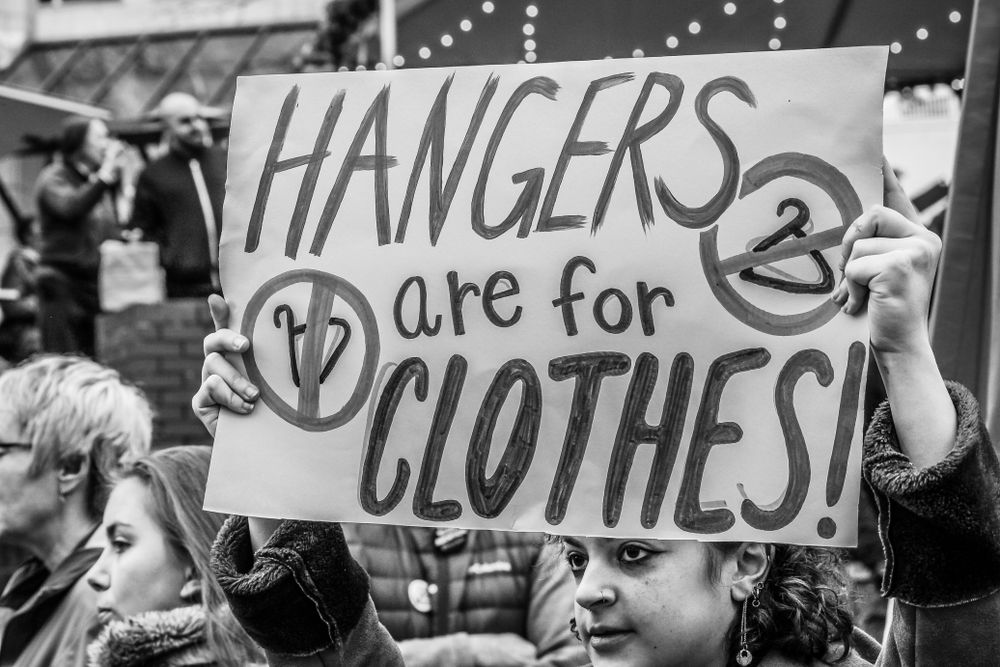After the Roe v. Wade Leak, a Deluge of Support for Oregon-Based Abortion Funds

Oregon is one of a handful of states that will be a safe haven for abortion seekers should Roe v. Wade fall.
Image: Laura Kneedler/Shutterstock
Oregon is bracing for a surge of pregnant people coming to the state seeking safe abortions, in the wake of the recently leaked Supreme Court draft opinion suggesting an imminent end to Roe v. Wade.
And while they will need medical care, other kinds of support will be just as critical, including financial help with travel costs and a safe place to stay upon arrival.
That’s put several local organizations that provide such financial and emotional support for abortion seekers into the spotlight in the last week, and they’ve been deluged by offers of help.
More financial assistance for the cause is coming: the Oregon State Legislature recently passed the Reproductive Health Equity Fund—a $15 million grant intended to eliminate cost barriers for abortion seekers. Seeding Justice, a nonprofit which funds social change organizations, plans to distribute the money between abortion funds across the state, some of which frequently service out-of-state clients. The Guttmacher Institute estimates a potential 234 percent increase in people traveling to Oregon for abortion care if Roe V. Wade is overturned.
“The leak was unexpected and certainly unprecedented. But we fully expected that this conservative court was going to overturn Roe v. Wade,” says Cyndy Wilson, a board member of the Northwest Abortion Access Fund. “I think for us, it was a matter of making sure that when that happened we had the infrastructure in place needed in order to serve the increased needs that we were going to experience.”
The NWAAF nonprofit is a volunteer-run, donation-based abortion fund that “raises and grants funds locally to help people who otherwise cannot afford the cost of safe, legal abortion care,” from transportation costs to the abortion itself. They operate in Oregon, Washington, Idaho, and Alaska, and have served about 800 people a year; typically providing $300 to $400 worth of financial support per person. The majority of their callers are from Idaho, where abortion is already not easy to access.
“Twenty-five percent of Idahoans [already] have to travel to a different state, and once Roe V. Wade is overturned, we know that a trigger law in Idaho will go into place that will make abortion fully inaccessible,” says Wilson. “So, we are preparing for the influx of Idahoans seeking abortions who will now need travel support to get to other states.”
And Idaho is just one of the 26 states predicted to follow the Supreme Court’s ruling against abortion—abortion clinics will close all over the U.S., says Wilson.
“A lot of the abortion funds work together in a network, and we will likely be fielding requests from folks all over the country attempting to get to our region to access a safe abortion, because our region has a decent amount of abortion clinics relative to a lot of the other parts of the country,” she says.
In addition to financial support, the NWAAF partners with the Cascade Abortion Support Collective, a Portland-based grassroots organization of about 50 unpaid volunteers which provides “emotional, practical, and logistical support for people seeking abortions.” That means transportation to and from the clinic, hotel stays, meal support, groceries, aftercare kits, and more. The reproductive justice organization also provides plan B, pregnancy tests, and has helped an estimate of 300 callers in 2022 alone, all from “incredibly broad and diverse backgrounds” says Cheryl, a collective member who preferred to stay anonymous.
“There is no typical client or caller that we have. We support people from literally every single circumstance you could possibly imagine. There's no common thread, racially or ethnically or socio economically,” she says, though the bulk of callers come from Idaho, Texas, and Southern Oregon. “We support people who are without a home or without a house and we support people who are in high seven figure jobs.”
Immediately after the leak, about 100 people contacted CASC to offer to volunteer, Cheryl says. The support is appreciated, but scaling up capacity is tricky for such small, volunteer-driven organizations. Instead, donations are encouraged, particularly to abortion funds in trigger states. Head to National Network of Abortion Funds to find organizations that fund abortion, or to Apiary Collective, for groups that provide practical support.
Those looking for a more hands-on approach to abortion activism can make their way to Chapman Square this Saturday, May 14th, where activists will gather for an event and rally beginning at 1 p.m.
“For people who are working in abortion support, it's really like an ongoing daily conversation that we've been having forever,” Cheryl says. “We really try not to be reactive to news about these things, but as they're happening, we try to stay rooted in our long-term goals, which essentially is just continue to be able to provide this support to people. People will continue to have abortions; people will continue to need this kind of support. And we are in a position where we're able to provide it. So, though we will be impacted by the legality of it, what we do will continue.”




